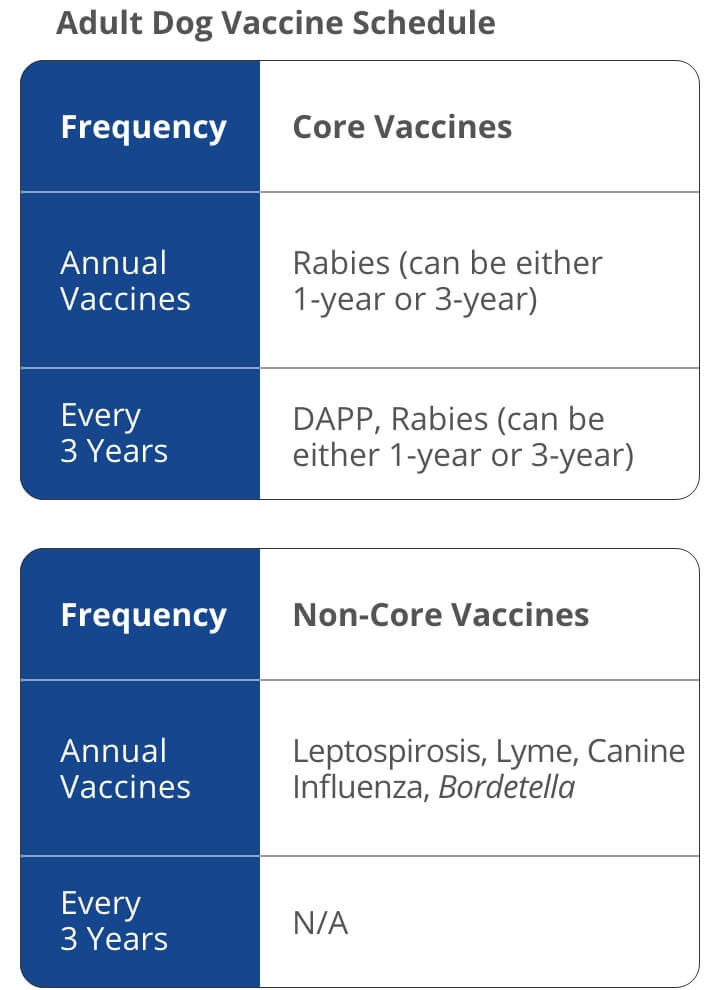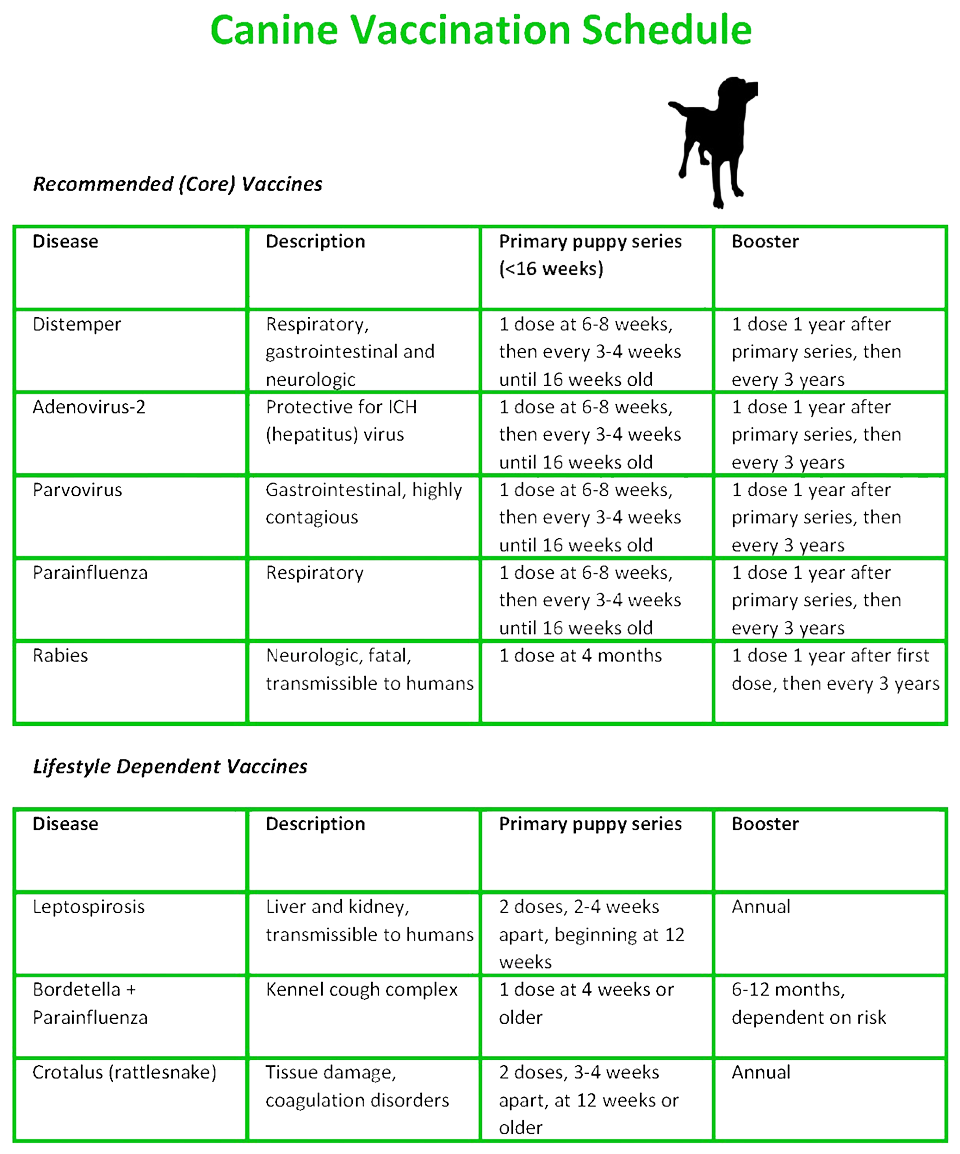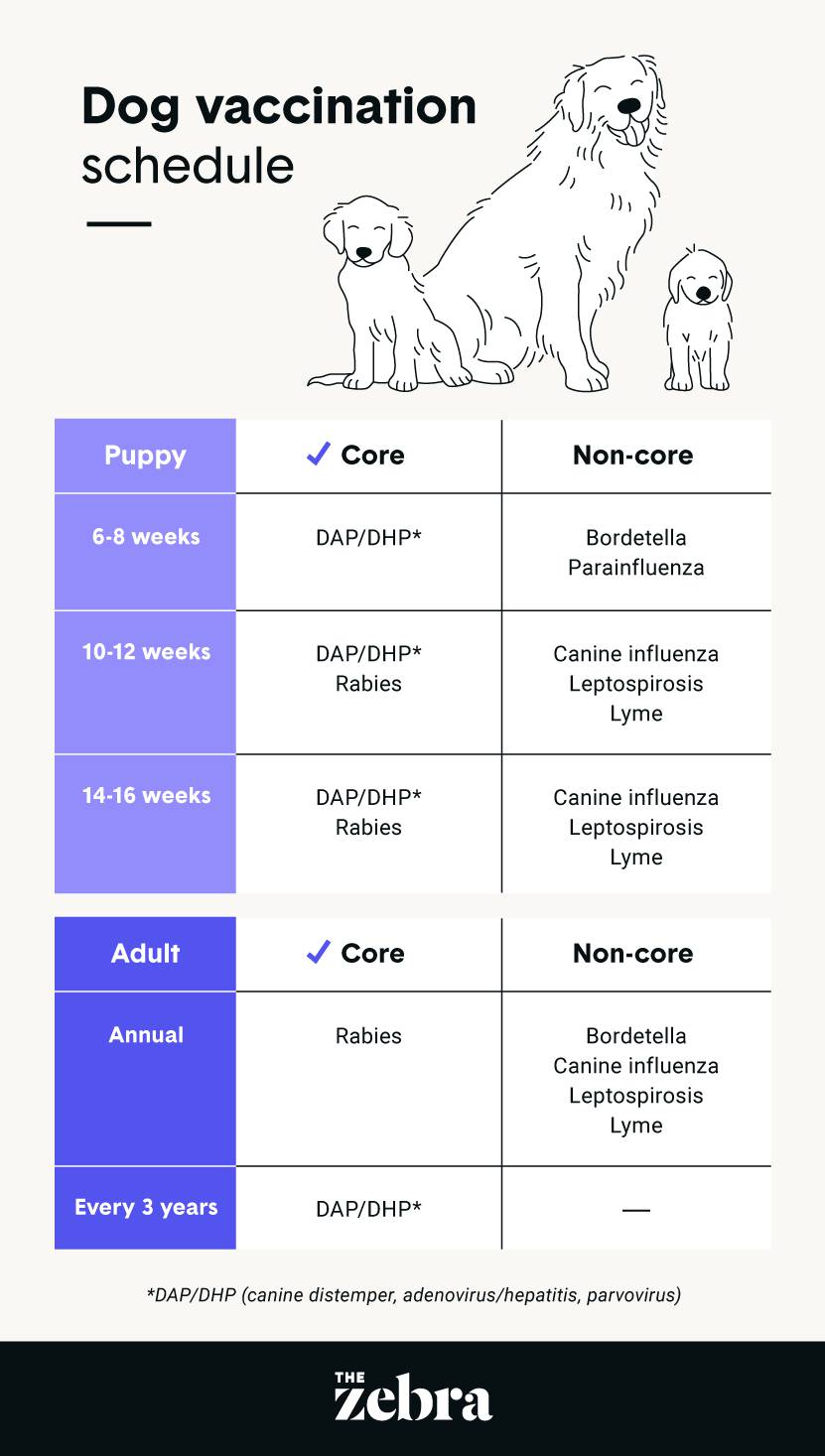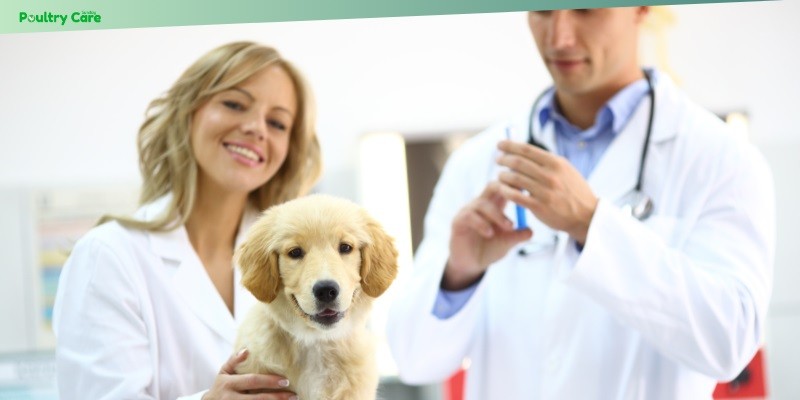Ensuring your dog is healthy starts with vaccinations. They protect against harmful diseases.
Vaccinations are essential for both puppies and adult dogs. They help build immunity and prevent various illnesses. Understanding the right vaccination schedule can be challenging. Puppies need more frequent shots, while adult dogs require boosters. Timely vaccinations keep your pet safe and healthy.
In this post, we will explore the vaccination schedule. You will learn when to vaccinate your puppy and adult dog. This guide is crucial for your pet’s well-being. Let’s dive in and ensure your furry friend stays protected.

Credit: healthyhabitsforpets.com
Puppy Vaccination Timeline
Vaccinating your puppy is crucial for their health and longevity. Understanding the timeline ensures your furry friend is protected from harmful diseases. You might wonder, “When should my puppy get vaccinated?” Let’s break down the essential details of the puppy vaccination timeline.
Core Vaccines
Core vaccines are essential for every puppy. They protect against diseases that are widespread and potentially deadly. The typical schedule starts at 6-8 weeks of age.
- Distemper: A highly contagious viral disease affecting respiratory, gastrointestinal, and nervous systems.
- Parvovirus: Known for severe gastrointestinal issues, parvovirus is lethal if not treated early.
- Adenovirus: Protects against hepatitis, affecting liver and other organs.
These vaccines are usually administered in a combination shot, commonly known as DHPP. Boosters are given every 3-4 weeks until your puppy reaches 16-20 weeks old. Isn’t it comforting to know that these vaccines can prevent so much suffering?
Non-core Vaccines
Non-core vaccines depend on your puppy’s lifestyle and risk factors. Think about where you live and your dog’s daily activities.
- Leptospirosis: If your puppy loves water or lives near wildlife, this vaccine is a wise choice.
- Bordetella: Commonly known as the kennel cough vaccine, ideal for dogs who frequent boarding facilities.
- Lyme Disease: If ticks are common in your area, consider this vaccine to protect your pup.
Discuss these options with your vet. They can tailor a plan to suit your puppy’s specific needs. Have you ever thought about how much your dog’s environment affects their health?
Following a vaccination schedule ensures your puppy grows up healthy and strong. What steps will you take today to protect your furry companion?

Credit: kindnesscountstn.org
Adult Dog Vaccination Schedule
Maintaining your adult dog’s health includes regular vaccinations. Vaccines protect against various diseases. They are essential for your dog’s well-being. Follow a proper vaccination schedule to ensure lasting protection.
Annual Boosters
Annual booster shots are important for adult dogs. They help maintain immunity against common diseases. Core vaccines like rabies, distemper, and parvovirus usually need boosters. Your vet will advise the specific schedule for your dog. Do not skip these annual boosters. They are crucial for ongoing protection.
Optional Vaccines
Some vaccines are not required for every dog. These optional vaccines depend on your dog’s lifestyle and environment. For instance, if your dog spends time in wooded areas, the Lyme disease vaccine may be recommended. Dogs that socialize often may need the Bordetella vaccine to prevent kennel cough. Discuss with your vet which optional vaccines are suitable for your dog.
Managing Side Effects
Puppies and adult dogs need vaccinations to stay healthy. Managing side effects ensures they remain comfortable and safe. Always monitor your pet after vaccination.
Vaccinations are essential to keep your furry friend healthy. However, they can sometimes cause side effects. Knowing how to manage these reactions can help you ensure your dog remains comfortable and safe.
Common Reactions
Most dogs will experience mild side effects post-vaccination. These can include slight swelling at the injection site, reduced appetite, or lethargy.
Your puppy might seem a bit tired or less playful for a day or two. It’s perfectly normal and usually nothing to worry about.
Another common reaction is a small lump where the vaccine was administered. This should disappear within a few days.
When To Contact A Vet
While mild reactions are typical, some signs require immediate attention. If your dog experiences severe swelling, persistent vomiting, or difficulty breathing, contact your vet right away.
It’s important to monitor your pet closely after vaccinations. If symptoms worsen or don’t improve within 24 hours, seek professional advice.
I once had a puppy who became unusually quiet after a shot. Trusting my instincts, I called the vet. It turned out he was having an allergic reaction, and we caught it early.
Have you ever wondered if these side effects can be prevented? Understanding them can help you feel more prepared and less anxious.
Remember, your vet is there to support you. Don’t hesitate to reach out with concerns.
Proper management of side effects ensures your dog stays happy and healthy.

Credit: www.thezebra.com
Tips For Safe Vaccination
Vaccinating your puppy or adult dog is essential for their health. Proper vaccination protects them from serious diseases. Following safety tips ensures your dog stays healthy and stress-free during the process.
Choosing A Vet
Selecting the right vet is crucial. Look for a vet with experience in animal vaccinations. Read reviews and ask for recommendations. Ensure the clinic is clean and well-equipped. A good vet will explain the vaccination process clearly.
Pre-vaccination Preparation
Prepare your dog before the visit. Keep them calm and relaxed. Avoid feeding them a heavy meal before the appointment. Bring their medical records. This helps the vet understand your dog’s health history. If your dog is anxious, bring their favorite toy or blanket. This provides comfort and reduces stress.
Frequently Asked Questions
What Is The Proper Vaccination Schedule For A Dog From Puppy To Adulthood?
Puppy vaccination starts at 6-8 weeks with DHPP. Booster shots follow every 3-4 weeks until 16 weeks. Rabies vaccine at 12-16 weeks. Adult dogs need annual DHPP and rabies boosters. Consult your vet for a personalized schedule.
How Long After A 2nd Puppy Vaccination Can They Go Out?
Puppies can go out 7 days after their 2nd vaccination. Ensure they avoid high-risk areas to stay safe.
How Many Shots Do Puppies Need To Be Fully Vaccinated?
Puppies typically need three to four sets of vaccinations. These begin at 6-8 weeks old and continue every 3-4 weeks until 16 weeks.
How Do I Know What Vaccines My Dog Needs?
Consult your veterinarian for a tailored vaccination plan. Regular check-ups and discussions help determine necessary vaccines.
What Is The First Vaccination For Puppies?
The first vaccination for puppies is usually the DHPP shot. It protects against distemper, hepatitis, parainfluenza, and parvovirus.
Conclusion
Keeping your puppy or adult dog on a regular vaccination schedule is crucial. It ensures they stay healthy and protected against various diseases. Consult your vet to create a tailored plan. This helps to avoid any gaps in their vaccination routine.
Remember, a well-vaccinated dog leads a longer, happier life. Stay proactive and keep track of their vaccines. Healthy pets bring joy to our lives.
Last Updated on June 27, 2025 by Pauline G. Carter

